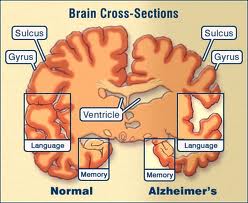Simple tests of physical ability like walking and gripping may give clues as to who at middle aged people are most likely to develop Alzheimer’s and suffer a stroke, later in life.
The study involved monitoring more than 2,400 participants with an average age of 62 over 11 years.
Among the participants who have a slower walking speed were found to be one and a half times more likely to develop dementia over the age of 65 compared with those who were more speedy.
Likewise, people with a stronger grip had a 42 per cent lower risk of stroke or a mini-stroke known as a transient ischemic attack (TIA) over the age of 65, although the risk was not cut at younger ages.
Participants in the U.S. study were tested for walking speed, hand grip strength and cognitive function, and had brain scans.
During the follow-up period, 34 people developed dementia and 70 people had a stroke.
Lead researcher Dr. Erica Camargo of Boston Medical Center said this level of testing could be routinely carried out by primary care physicians and GPs. ‘These are basic office tests which can provide insight into risk of dementia and stroke and can be easily performed by a neurologist or general practitioner,’ she added.
Researchers also found that slower walking speed was associated with lower total cerebral brain volume, fewer ‘grey’ cells and poorer performance on memory, language and decision-making tests.
Stronger grip strength was associated with larger total cerebral brain volume as well as better performance on cognitive tests asking people to identify similarities among objects.
Dr. Anne Corbett, of the Alzheimer’s Society, said: ‘Before people take stock in the strength of a handshake or the speed you cross the road, more research is needed to understand why and what other factors are involved.
‘The good news is that there are many things to reduce your risk of developing dementia.
‘We recommend you eat a healthy balanced diet, don’t smoke, maintain a healthy weight, take regular exercise, and get your blood pressure and cholesterol checked regularly.’
